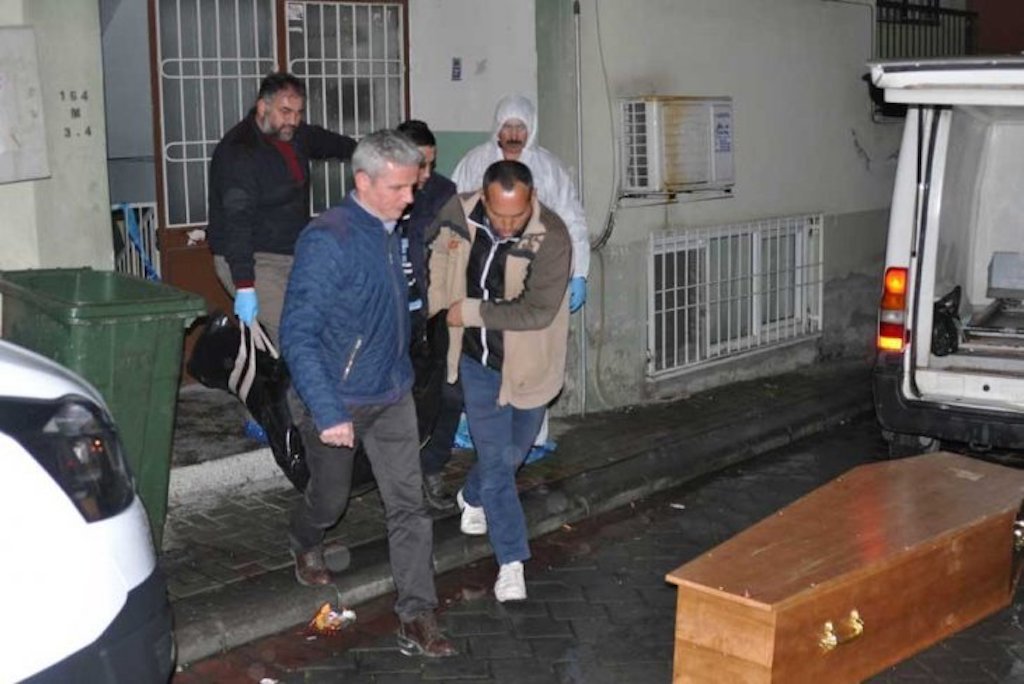A Turkish woman in Turkey’s Denizli province has killed his disabled son and committed suicide because of the unbearable stress and psychological pressures stem from the persecution of Turkish government under the rule of law declared in the aftermath of a controversial coup attempt on July 15, 2016.

It was reported by the online news outlet Aktif Haber on Friday that Seher Baş, whose ex-husband İbrahim Öztürk was detained and put behind the bars over his alleged links to the Gülen movement, has killed her 17-year-old Cerebral Palsy patient son Eyüp Öztürk with a rifle and then committed suicide by shooting himself with the same rifle. Seher Baş had divorced from his ex-husband İbrahim Öztürk a year ago. Her son was reported to be 99 percent disabled.
According to the report, the incident has occurred at 8:00 p.m. in the district of Pamukkale district of Denizli province on Thursday. As the neighbours of Seher Baş heard the gunshots they has informed the police. Police broke the door of Baş’s house and found the corpses of mother and her disabled son. Following the crime scene investigation the bodies of the victims were transferred to the morgue of Pamukkale University Hospital’s Forensic Medicine Institution.
It was also reported that Seher Baş’s ex-husband İbrahim Öztürk was first jailed and later dismissed from his job at the Turkey State Railways (TCDD) by a government decree under the rule of emergency over his alleged links to the Gülen movement.
It was also learned that Seher Baş and his son were trying to keep up their lives with a small salary paid by state for disabled people and helps from municipalities and their neighbors. It was also claimed that Baş, who has had severe psychological problems in recent times because of the difficulties, had often told her neighbors that “I will kill my son and commit suicide.”
Stockholm Center for Freedom (SCF) has reported in one of its studies titled “Suspicous Deaths and Suicides In Turkey” that there has been an increase in the number of suspicious deaths in Turkey, most in Turkish jails and detention centers where a torture and ill-treatment is being practiced. In most cases, authorities concluded these as suicides without any effective, independent investigation.
The suspicious death has also taken place beyond the prison walls amid psychological pressure and threats of imminent imprisonment and torture, sometimes following the release of suspects or just before the detention. SCF has compiled 106 cases of suspicious death and suicides in Turkey in a list in a searchable database format.(SCF with turkeypurge.com)
Turkey survived a controversial military coup attempt on July 15, 2016 that killed 249 people. Immediately after the putsch, the Justice and Development Party (AKP) government along with Turkish autocratic President Recep Tayyip Erdoğan pinned the blame on the Gülen movement.
Gülen, who inspired the movement, strongly denied having any role in the failed coup and called for an international investigation into it, but President Erdoğan — calling the coup attempt “a gift from God” — and the government initiated a widespread purge aimed at cleansing sympathizers of the movement from within state institutions, dehumanizing its popular figures and putting them in custody.
Turkey has suspended or dismissed more than 150,000 judges, teachers, police and civil servants since July 15. Turkey’s Interior Minister announced on December 12, 2017 that 55,665 people have been arrested. Previously, on December 13, 2017, The Justice Ministry announced that 169,013 people have been the subject of legal proceedings on coup charges since the failed coup.
A total of 48,305 people were arrested by courts across Turkey in 2017 over their alleged links to the Gülen movement, said Turkish Interior Minister Süleyman Soylu on Dec. 2, 2018. “The number of detentions is nearly three times higher,” Soylu told a security meeting in İstanbul and claimed that “Even these figures are not enough to reveal the severity of the issue.”















